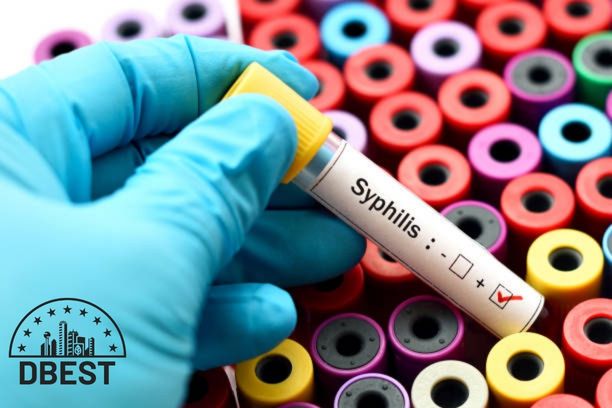Categories > Guides and Tips

STD Testing in Dallas: Complete Guide
Dallas has the second-highest number of STD cases in the state, according to data from the Texas Department of State Health Services. Chlamydia and gonorrhea are the most common STDs for both men and women.
The prevalence of STDs in Dallas is why it’s so important to get tested.
Who should be tested for STDs?

As a general rule, all sexually active people should get tested for STDs. Pregnant women and people with autoimmune diseases should be tested more frequently.
Those in exclusive sexual relationships are less at risk, though they should still opt for tests if either party has a history of STDs.
People currently diagnosed with STDs are at a higher risk of developing more STDs and should still get tested.
Minorities also have a higher risk of infection compared to Caucasians, according to the CDC.
Pregnant women should get themselves tested often as STDs can have serious effects both on the mother and her baby if left untreated.
The mother could become infertile or have a miscarriage, while the fetus could be prematurely born or delivered at least 5.5 pounds underweight.
People with autoimmune diseases like HIV are more susceptible to infections and should get themselves tested often. Untreated STDs can become more dangerous than they should be and can even be fatal.
What STDs should you get tested for?

You do not have to get yourself tested for every STD out there. Your risk for certain STDs can vary depending on your age, sexuality, gender, and lifestyle.
Compiled in the table below are guidelines the CDC released on what STDs to get tested for.
| Sexually Transmitted Disease | Groups Most at Risk | Testing Frequency |
| Bacterial Vaginosis | – All women | – Every 3 to 6 months |
| Chancroid | – All sexually active persons – Uncircumsized men | – If experiencing visual symptoms |
| Chlamydia | – Persons below 25 years old – Pregnant women – LGBTQ men | – Once a year |
| Gonorrhea | – All sexually active persons – Persons below 25 years old – Sexually active African Americans – LGBTQ men and transgender women | – Once a year – Every 3 to 6 months for those with multiple partners |
| Viral Hepatitis | – LGBTQ men – Persons using or are exposed to needles – HIV-positive persons – Persons who received blood transfusions or organ transplants – Former and current dialysis patients | – Once in a lifetime – Every 3 to 6 months for those with multiple partners |
| Herpes | – All sexually active persons, especially women | – Once symptoms appear – Most doctors will refuse to screen you without visual symptoms |
| Human Immunodeficiency Virus (HIV) | – Persons aged 13 to 64 – STD-positive persons – LGBTQ men and transgender women – Drug users – Sexually active African Americans and Latinos | – Once a year – Every 3 to 6 months for those with multiple partners |
| Human Papillomavirus Infection (HPV) | – All non-virgins below 65 years old, sexually active and non-active | – Once every 5 years |
| Lymphogranuloma Venereum (LGV) | – Persons aged 15 to 40 years old – LGBTQ men and transgender women – HIV-positive persons – Chlamydia-positive persons | – Every 3 months |
| Mycoplasma genitalium | – Persons with symptoms – Women with scheduled cervical surgeries | – Once symptoms appear |
| Pelvic Inflammatory Disease (PID) | – Women below 25 years old – Women with untreated STDs – Women within 3 weeks of a newly-placed IUD | – Once exposed to an STD or are experiencing PID symptoms |
| Syphilis | – All sexually active persons | – Once a year – Every 3 to 6 months for those with multiple partners |
| Trichomoniasis | – Persons who have engaged in genital sex – Older women | – Once symptoms appear |
What STDs you should be tested for also depends on your area of residence and how prevalent certain STDs are.
Chlamydia, gonorrhea, syphilis, and HIV are the most common STDs in Dallas.
According to the CDC’s 2018 STD Surveillance Report, Dallas is in the top 10 counties nationwide for the most chlamydia and gonorrhea cases.
Where can you get tested for STDs in Dallas?

STDs can be tested through family and abortion clinics in Dallas or with FDA-approved self-test kits. Most insurance companies cover testing costs.
Local clinics like Kind Clinic and Agape Clinic can screen you for free. These clinics also accept self-test samples.
All clinics that screen STDs handle your results with strict confidentiality. You can get free, confidential, and zero-judgement STD tests from any of the following clinics:
| Clinic | Address | Contact Details | STD Services |
| Resource Center | 4012 Cedar Springs Rd, Dallas, TX 2701 Reagan St, Dallas, TX | 214-521-5124 (Cedar Springs) 215-528-0144 (Reagan) | Chlamydia, conventional and rapid HIV, gonorrhea, hepatitis ABC test and vaccines, HPV vaccine, syphilis, free condoms |
| The Agape Clinic | 4104 Junius St, Dallas, TX | 972-707-7782 | Chlamydia, conventional and rapid HIV, gonorrhea, hepatitis BC test and vaccine, herpes, syphilis |
| Baylor Scott & White MedProvider | 3417 Gaston Ave Ste 1000 & 1100, Dallas, TX | 469-800-9000 | Chlamydia, conventional HIV, gonorrhea, hepatitis ABC test and vaccines, herpes, HPV vaccine, syphilis |
| Kind Clinic – Oaklawn | 3802 Cedar Springs Rd Suite 110, Dallas, TX | 833-937-5463 | Chlamydia, conventional and rapid HIV, gonorrhea, herpes, syphilis |
How are STD tests performed?

STD tests are performed in clinics or through self-test kits, using visual diagnoses, blood tests, urine samples, mouth, rectal, and genital swabs, pap smears, and lumbar punctures.
The type of test performed depends on the STD you’re testing for and what body parts were used for sex.
Gonorrhea, for example, can be tested through urine samples and mouth and rectal swabs if the person had oral and anal sex.
Some STDs and STIs have no official tests, such as PID, and require you to be honest with your doctor regarding your sexual history and symptoms.
The more information the doctor gets, the more accurate the diagnoses will be.
Different STDs require different tests, so refer to the table below to know what to expect:
| Testing Method | Type of STD |
| Urine Sample | Chlamydia, gonorrhea, LGV, mycoplasma genitalium (men) |
| Blood Sample | Chancroid, viral hepatitis, herpes, HIV, syphilis |
| Pap Smear | Chlamydia, HPV, PID |
| Mouth Swab | Gonorrhea, herpes, LGV, syphilis |
| Rectal Swab | Gonorrhea, herpes, LGV, mycoplasma genitalium, syphilis |
| Genital Swab | Bacterial vaginosis, chancroid, herpes, LGV, mycoplasma genitalium (women), PID, syphilis, trichomoniasis |
| Lumbar Puncture | Syphilis (for HIV-positive individuals only) |
Self-testing kits are also available from your local pharmacies and STD clinics. With these kits, you collect your own samples and then ship them to a lab for testing.
Preparing for an STD Test

To prepare for an STD test, you should first take note of your sexual history and be ready to honestly answer all of your doctor’s questions.
If your test requires a urine sample, avoid peeing for 2 hours before you collect. Collect the sample midstream for the most accurate results.
Your doctor will tell you how often you should get tested, depending on your history and any conditions that may put you at a higher risk.
If you currently have a sexual partner, you can invite them to get tested with you.
What should you do if you test positive for STDs?

STD-positive individuals should test themselves for additional STDs and immediately inform their current and former partners of the results so they too can get tested.
Avoid having any sexual contact until you’ve been cleared by your doctor. Get another test after a few months to avoid reinfection.
Since you are now at an increased risk of contracting additional STDs, you should get further tests so you can address them all at once.
Once you’re STD-free, you should try to get tested again after a few months to make sure you don’t get reinfected. STI reinfections are common and can even happen within a week of recovery.
Although there is no complete cure for HIV, your doctor will prescribe you antiretroviral medicine to stop the replication of the virus. This can bring the virus down to a point where you can have sex without infecting your partner.
If your doctor prescribes you antibiotics, make sure you keep taking them even after the symptoms disappear. This is to ensure that the bacteria dies and does not develop any resistance.
How can you prevent getting STDs?

The most effective way to prevent STDs is to practice safe sex through the use of sex barriers like latex condoms and dental dams.
You should regularly clean your sex toys and avoid sharing needles. Vaccines are also an effective preventive method for hepatitis and HIV.
Condoms can either be penile or internal, but you should never use both at the same time. Preferably, condoms should be used on all forms of penetrative sex including oral and on dildos if shared with a partner.
Dental dams are thin latex sheets used to protect your mouth, vagina, or anus during oral sex. Latex gloves and condoms can be cut up and used to make these dams.
Some STDs can also spread through skin-to-skin contact despite the use of condoms, so avoid having sex with your partner if they have visible warts and blisters near their mouths or genitals.
HIV and viral hepatitis can be spread during drug use through shared needles. It would be best to avoid this activity to minimize the risk of infection.





